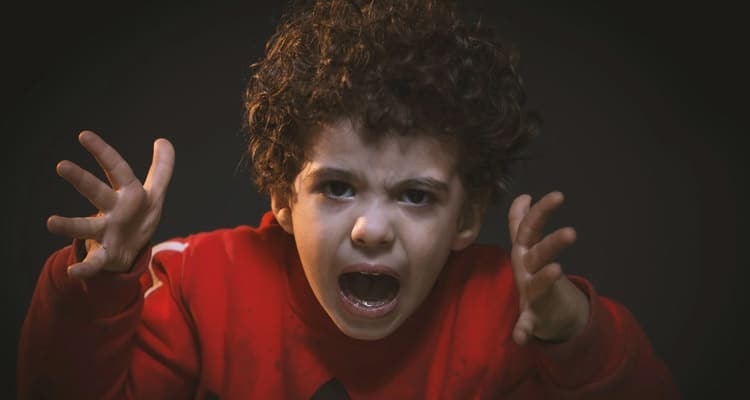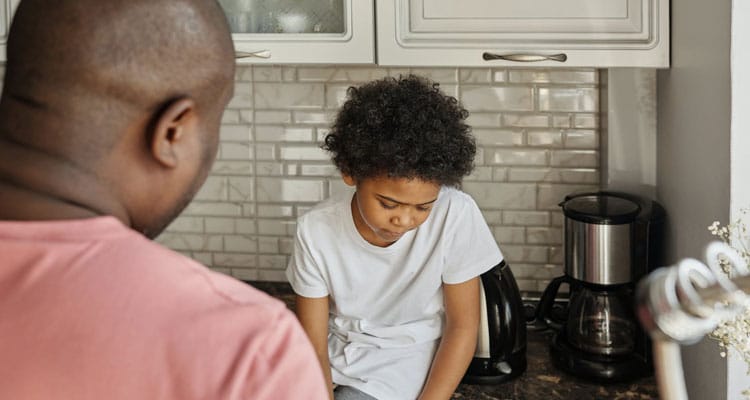This reality is so well portrayed in the 1979 film Kramer Vs Kramer that had Meryl Streep and Dustin Hoffman in the lead. However, with more and more couples realizing that the old adage of “staying together for kids” in an unhappy marriage is not the best solution, they are opting to split up. Even if it is the best recourse left to you, the decision to end a marriage should not be taken without factoring in the impact of divorce on children and having a concrete plan to deal with it. Divorce and children is still not an uncommon correlation. In fact, what is interesting is that children of divorce are 35% more likely to have a divorce of their own.
8 Negative Effects Of Divorce On Children
How you deal with divorce has a great deal of bearing on how your children may deal with it. Children have amazing coping mechanisms. If they are taught the right coping mechanism and tools, and cared for during this time, they will sail through it all. If you and your spouse have come to a point in your marriage where differences seem irreconcilable, before deciding to call it quits, you must factor in impact of divorce on children. This is not to suggest that you continue staying in an unfulfilling or unhappy marriage. But that you and your soon-to-be-ex spouse need to come up with a plan to make this rocky transition as smooth for the kids as possible. Being mindful of these 8 negative effect of divorce on children can give you clarity on how to handle this delicate situation:
1. A new normal
A divorce is usually a time filled with anxiety, confusion, frustration and multiple changes for children. Couples are faced with the ramifications of young children and divorce as well as a struggle to cope. Divorce is about letting go but that process is just not easy. It brings too many challenges and emotions that are left to be dealt with. Many ‘adjustment behaviors’ are seen among kids as they transition to the new normal of their life. Many rebel against the idea of having two separate homes and having just one parent around. They worry that their parents may stop loving them just as they have each other. Some children even feel that the divorce is their fault, thinking that something they did has led to the divorce. This biggest problem when it comes to divorce and children is when the child internally assumes responsibility for the divorce.
2. Dealing with one parent
More often children who may have grown up with both parents find it hard to adjust and cope with single parent/custodial parent after the divorce. As they adjust to the new normal, they have fractured relationships with the custodial parent, mostly mothers. Sometimes this parent, who is going through a divorce, may not be able to deal with the child’s reaction to the divorce or give them what they need to accept this unpleasant reality. How to explain divorce to a child is harder than we think. In such cases, discipline becomes less consistent and less effective. The parent may even start becoming distant from the child. The physical effects of divorce on a child include kids becoming moody, aggressive, anxious, mood swings, intense sadness, disillusion and distress, secretive, vengeful and breaking rules. These are short-term negative effects of divorce that can hamper a child’s psychological and physiological growth.
3. A major stressor
When dealing with divorce and children, you have to factor in the stress multiple changes and adjustments can trigger in their young, impressionable minds. With one custodial parent and another living away, the child comes to view divorce as a stressor that changes his or her life irrevocably. Children of divorced parents are sometimes required to change cities, schools and losing contact with one parent, moving to a new home, making new friends, new neighborhoods, getting used to having just one parent present in their everyday life. In case the custodial parent decides to remarry, the stress of having new step-siblings and adjusting to a new person coming into the family fold can be an additional stressor.
4. Spike in behavior problems
Conduct disorders, grades slipping in school, impulsive or rash behavior, delinquency and conflict with peers and with siblings or the parent at home. Sometimes when kids notice that only one parent is in charge and the other is not, they tend to break rules assuming that they can get away with it. This tendency to act out and spiral out of control can also be a way of lashing out against the parents’ decision to part ways. Divorce and children is a precarious combination because not only the child deals with unfortunate external factors, but has to adjust to internal problems as well.
5. Risky behavior
Children with divorced parents are more likely to engage in risky behavior like substance abuse, early sexual activity, use of alcohol and drugs, committing crimes and so on. They are also a high-risk group for engaging in sexual activity before age 16. Parents’ failing marriage can be one of the common causes of insecurity. Due to this insecurity, they indulge in unhealthy activities to relieve the pressures on themselves.
6. Can affect grades
A divorce spells adjustment for parents as well as children. For kids, it is an unusually confusing and frustrating time. This could affect their grades and study time as they try to make sense of what is going on at home and put their studies on the back burner. Many a time while parents are involved in divorce litigation or the adjustment post-divorce, they tend to slip up and not monitor the children’s studies or help with their studies. This is when their grades start slipping and a downward spiral happens which could take time to correct.
7. High risk of mental illnesses
Studies have shown that children of divorced parents encounter psychological problems and adjustment problems, notwithstanding their age, gender and culture. They also find that anxiety and depression rates are higher among children who have parents who are divorced.
8. Problematic adult behavior
Many children see their parents split, remarry or stay a single parent, carry unresolved issues from this phase of life into their adulthood as well as adult relationships. This can instill in them a fear of commitment or a tendency to self-sabotage relationships, which impedes them from cultivating healthy relationships in their life. Many go on to develop psychiatric issues, affecting their mental health and leading to substance abuse.
What The Expert Says About Divorce and Children
Cognitive therapist and psychiatrist Dr Shefali Batra breaks down the effects of divorce on children’s behavior that parents can scope out and tend to during a divorce:
What children sense after divorce
The impact of divorce on children can be extremely harrowing. It not only makes them doubt the people they trust the most but also makes them feel inferior and guilty. Children tend to project the problem onto themselves that can manifest in seriously problematic behavior, such as:
AbandonmentDisillusionmentLose their autonomyInsecurityLonelinessGuilt as if they caused itResentmentRegression (acting like a smaller kid)
What divorce does to adolescents
Adolescence is already a tricky time in every person’s life. Additionally, witnessing your parents’ divorce can make it all the worse. Adolescents may lose motivation in life or indulge in delinquent behavior to deal with their problems.
Academic issuesAntisocial actsGet into casual datingSexual promiscuityBecome aggressiveAre more irresponsibleCould face sluggishnessFace identity crisis
If parents are more aware of the impact of divorce on children they can help them cope better with the situation, overcome the negative feelings and build a positive future together accepting the changes that have happened in their life.
Dos And Don’ts When Divorce Involves Children




